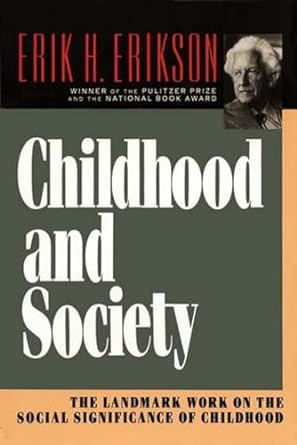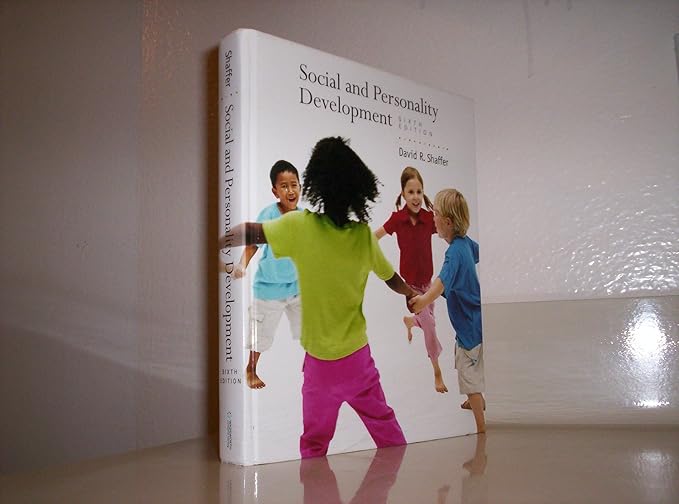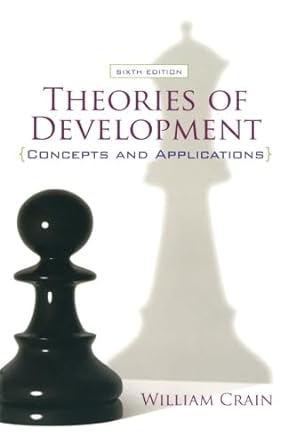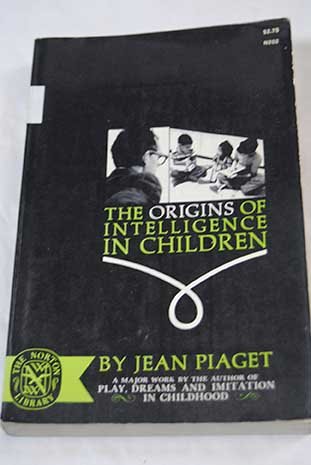Contents
Introduction
Developmental psychology is the scientific study of how individuals grow, change, and adapt throughout their lives. It covers all stages of life, from infancy through old age, focusing on physical, cognitive, emotional, and social development. Researchers in this field investigate how people develop skills, learn, and form identities, as well as how aging impacts mental and emotional health. By studying these changes, developmental psychology helps us understand human growth patterns and the factors influencing development at each stage of life.
In this article, we will explore key concepts and stages of developmental psychology. We’ll look into physical, theories, and emotional development from infancy to old age.
History of Developmental Psychology
| Time Period | Key Developments |
| Ancient Times | Early philosophers like Plato and Aristotle explored human development, focusing on nature vs. nurture, laying foundational concepts. |
| 17th-18th Centuries | John Locke’s tabula rasa emphasized the environment’s role, while Jean-Jacques Rousseau advocated for natural development, influencing educational reforms. |
| 19th Century | Charles Darwin’s theory of evolution introduced ideas of developmental stages. G. Stanley Hall initiated empirical child development research, emphasizing adolescence. |
| Early 20th Century | Sigmund Freud’s psychosexual stages highlighted early childhood experiences. Behaviorists John Watson and B.F. Skinner focused on learning and environmental influence. |
| Mid-20th Century | Jean Piaget’s cognitive development theory outlined stages of thinking. Erik Erikson’s psychosocial stages linked development to social interaction. Lev Vygotsky emphasized cultural context. |
| Late 20th Century | Lifespan development gained attention. Lawrence Kohlberg studied moral reasoning stages, while Albert Bandura’s social learning theory highlighted observational learning and self-efficacy |
| 21st Century | Neuroscience and genetics provided insights into biological and environmental interplay. Developmental psychology expanded to include diverse populations, cross-cultural studies, and technology’s impact on development. |
What Do Developmental Psychologists Do?
- Conduct Research: Investigate physical, cognitive, social, and emotional development using empirical methods. Example: Conduct a longitudinal study to explore how early childhood education impacts cognitive skills in adolescence.
- Assess Developmental Milestones: Evaluate if children meet expected developmental milestones and recommend interventions. Example: Assess a child’s speech development to identify early signs of a speech disorder and suggest therapy.
- Work in Educational Settings: Develop curricula and programs to support optimal developmental outcomes in schools. Example: Design a curriculum that integrates social-emotional learning to enhance student well-being and academic success.
- Provide Therapy and Counseling: Offer therapy to address developmental issues across different life stages. Example: Provide counseling to a teenager dealing with anxiety related to academic pressures.
- Develop Interventions: Create programs to promote healthy development and collaborate with communities and policymakers. Example: Develop a community initiative to support positive parenting techniques for families in low-income areas.
5 Types of Developmental Psychology
- Physical Developmental Psychology: Focuses on the physical changes that occur from infancy through old age, including growth, motor skills, and biological maturation. Examines the impact of genetics, nutrition, and health on physical development.
- Cognitive Developmental Psychology: Studies how thinking, problem-solving, and decision-making skills develop over a lifetime. Investigates stages of cognitive development, memory, language acquisition, and the influence of educational practices.
- Social Developmental Psychology: Explores how individuals develop social skills, relationships, and social understanding. Look at attachment, peer interactions, family dynamics, and the impact of culture and society on social behavior.
- Emotional Developmental Psychology: Examines the development of emotions and emotional regulation. Studies how individuals understand, express, and manage emotions from childhood through adulthood, including the role of temperament and emotional intelligence.
- Moral Developmental Psychology: Investigates the development of moral reasoning and ethical behavior. Focuses on how individuals distinguish right from wrong, develop empathy, and make moral decisions, influenced by cognitive and social factors.
Key Concepts in Developmental Psychology
From birth to death, people continuously learn, grow, and change, and developmental psychologists seek to understand the “why” and “how” behind these transformations. Developmental psychology focuses on the changes and growth people experience throughout their lifespan, encompassing physical, social, mental, and emotional development.
At the core of developmental psychology is the quest to understand why people are unique. It seeks to unravel the mystery of individuality by addressing questions such as:
- Why is there so much individual variation despite 99.9% of our DNA being identical?
- Why do people with similar backgrounds and experiences have different habits, health outcomes, and preferences?
- How do our distinct personalities develop?
- What influences the different choices people make?
This field aims to answer questions about human development, particularly concerning individual differences. The key concepts include following:
- The Evolution of Human Development
- Continuity vs discontinuity in Human Development
- Stability vs change in Human Development
Now we will go through the key concepts, one by one.
The Evolution of Human Development
The evolution of human development explores how our growth and behavior have changed over time, both in terms of individual development and as a species. From a historical perspective, it examines how human development has adapted to environmental, social, and cultural changes. Experts in this field address issues such as:
Key Aspects of Development
- Cognitive and Emotional Development: Examines how thinking processes and emotional responses change over time, including how cognitive abilities like problem-solving and emotional skills like regulation develop through different life stages.
- Learning Disabilities and Developmental Challenges: Addresses various obstacles in cognitive and social development, including conditions that affect learning and the strategies used to overcome these challenges.
- Language and Moral Reasoning: Investigates how language skills evolve and how individuals develop a sense of morality, including the acquisition of language and the development of ethical understanding.
- Motor Skills and Personality Development: Focuses on the physical coordination and personality traits that develop from infancy through adulthood, examining how motor skills and personality characteristics emerge and change over time.
- Self-Awareness and Social Influences: Explores how individuals develop self-awareness and how social interactions and cultural contexts influence personal development and identity formation.
Continuity vs. Discontinuity in Human Development
Developmental psychology explores how individuals change from childhood to adulthood, focusing on thought, language, and social skills.
Two primary perspectives shape our understanding of these changes: continuity and discontinuity. The continuity view posits that development is a smooth, gradual process where abilities incrementally build upon one another.
Continuity Perspective:
- Gradual Development: Views development as a continuous, incremental process where abilities and skills build gradually over time.
- Smooth Transition: Suggests that changes occur in a steady, gradual manner, much like a slope.
- Cumulative Growth: Emphasizes that new skills and knowledge build upon previously acquired ones.
Discontinuity Perspective:
- Stage-Based Development: Proposes that development occurs in distinct stages, each characterized by significant changes in behavior or abilities.
- Abrupt Transitions: Highlights that each stage brings about abrupt, qualitative shifts in capabilities and understanding.
- Stage-Specific Growth: Each stage represents a different phase in development, akin to steps on a staircase.
Stability vs. Change in Human Development
The debate between stability and change in human development centers on whether personality traits and behaviors remain consistent throughout an individual’s life or if they are subject to significant transformations. Stability suggests that traits established early in life persist, indicating that early experiences have a lasting impact
- Capacity for Change and Plasticity: This view highlights how personality and behaviors can evolve through life experiences, including changes in family dynamics, education, and culture. Research such as Rutter’s (1981) on adoption illustrates how individuals can experience significant changes due to new environments.
- Influence of Environment and Experiences: Examines how external factors like family dynamics and social environments can alter personality and behavior, suggesting that individuals can adapt and change throughout their lives.
- Examples of Change and Adaptation: Demonstrates how individuals can shift personality types or modify behaviors based on experiences, such as an introverted child becoming more outgoing due to supportive environments.
Popular Theories in Developmental Psychology
Developmental psychologists often consider a wide array of theories to understand different aspects of human development. A few examples are listed below:
- Cognitive Development: A psychologist assessing intellectual growth in a child might consider Jean Piaget’s theory of cognitive development, which outlines the key stages children go through as they grow and learn.
For example: Piaget’s theory explains how children progress through sensorimotor, preoperational, concrete operational, and formal operational stages. - Attachment: A psychologist working with a child might also want to consider how the child’s relationships with caregivers influence their behaviors, so they might turn to John Bowlby’s theory of attachment.
- Personality: Sigmund Freud’s psychosexual theory of personality development is another influential theory that explains the importance of childhood experiences on personality development and how maladaptive coping styles and defense mechanisms emerge.
- Social and Emotional Growth: Psychologists are also interested in looking at how social relationships influence children’s and adults’ development. Erik Erikson’s theory of psychosocial development and Lev Vygotsky’s theory of sociocultural development are two popular theoretical frameworks that address the social influences on the developmental process.
Developmental Psychology Stages By Erikson’s
| Stage | Key Developments |
| Prenatal | Rapid physical development, formation of vital organs, and sensory system development. Environmental influences are critical. |
| Infancy | Motor skills, sensory experiences, and attachment to caregivers develop. Cognitive foundations like object permanence emerge. |
| Early Childhood | Language acquisition, basic motor skills, and early social interactions. Development of self-concept and emotional regulation. |
| Middle Childhood | Growth in logical thinking and academic skills. Peer relationships and self-esteem become more prominent. |
| Adolescence | Puberty and identity formation occur. Development of abstract and moral reasoning. Increased independence from parents. |
| Early Adulthood | Establishment of personal and economic independence. Career development and intimate relationships form. |
| Middle Adulthood | Stability in career and personal life. Focus on contributing to society and potential midlife reassessment. |
| Late Adulthood | Reflection on life and coping with physical decline. Adjustment to retirement and potential loss of loved ones. |
Important Books for Developmental Psychology

Attachment and Loss by John Bowlby 1969

The Ego and the Id by Sigmund Freud 1923

Childhood and Society by Erik Erikson 1950

Social and Personality Development

Development Through the Lifespan

Theories of Development: Concepts and Applications

Handbook of Child Psychology by William Damon

The Origins of Intelligence in Children
Recent Trends and Research Findings in Developmental Psychology
- Neuroimaging and Cognitive Growth: Recent studies using neuroimaging techniques like fMRI and EEG have enhanced our understanding of how brain development affects cognitive functions throughout different life stages. These insights are crucial for identifying and addressing developmental disorders.
- Effects of Childhood Adversity: Research increasingly focuses on how early childhood stress and trauma influence long-term psychological and physiological development. Findings emphasize the importance of early interventions to counteract these negative effects and promote resilience.
- Digital Monitoring Tools: The use of digital tools, such as apps and wearable devices, has become prevalent in tracking developmental milestones and behaviors. These technologies provide real-time data and personalized insights, enhancing developmental assessments and interventions.
- Gene-Environment Interactions: Advances in genetics and epigenetics are revealing how genetic predispositions interact with environmental influences to shape development. This research aids in understanding developmental disorders and tailoring preventive strategies.
- New Approaches in Early Childhood Education: Innovative educational strategies and interventions based on recent developmental research are being implemented to address developmental delays and improve outcomes for young children. These methods focus on optimizing learning and development during critical early years.
Challenges Faced in Developmental Psychology
- Complexity of Human Development: Understanding the intricate and multifaceted nature of human development, including the interplay between physical, cognitive, emotional, and social changes, presents significant challenges.
- Individual Variability: Each person’s development is unique, influenced by genetic, environmental, and cultural factors. This variability makes it difficult to create universally applicable theories and interventions.
- Longitudinal Research: Conducting studies over long periods to track developmental changes is resource-intensive and can be affected by participant dropout, changing conditions, and evolving methodologies.
- Ethical Considerations: Ensuring ethical standards in research, particularly when working with vulnerable populations like children, requires careful planning and adherence to guidelines to avoid harm.
- Integration of Diverse Theories: Reconciling and integrating various developmental theories and findings into a cohesive understanding of human growth can be complex and contentious.
FAQs
What is developmental psychology, and why is it important?
Developmental psychology studies how people grow and change from infancy to old age, covering physical, cognitive, emotional, and social aspects. Understanding these processes helps improve educational methods, parenting, and mental health interventions, enhancing overall well-being.
How do developmental psychologists conduct research?
They use methods like longitudinal studies to track changes over time, cross-sectional studies to compare different age groups, and experimental designs to test hypotheses. Tools such as observations and neuroimaging also provide valuable insights.
What role do genetics play in development?
Genetics provide the biological basis for many aspects of development, influencing physical traits, cognitive abilities, and susceptibility to certain conditions. However, genetic predispositions interact with environmental factors to shape overall development.
How does socio-cultural context influence development?
Socio-cultural factors, including family, community, and societal norms, shape developmental experiences and outcomes. Vygotsky’s theory emphasizes the role of social interactions and cultural tools in cognitive development.
Conclusion
Developmental psychology offers profound insights into how individuals evolve across their lifespan, encompassing physical, cognitive, emotional, and social dimensions. By exploring key theories and addressing contemporary challenges, this field enhances our understanding of human growth and development.
The ongoing research and advancements provide valuable knowledge that informs practices in education, therapy, and beyond, ultimately helping individuals achieve their full potential. As we continue to investigate the complexities of human development, the insights gained will further enrich our approaches to fostering healthy growth and addressing developmental issues.
Reference
- [1] Bowlby, J. (1969). Attachment and loss: Volume 1. Attachment. Basic Books.
- [2] Berk, L. E. (1998). Development through the lifespan. Allyn & Bacon.
- [3] Crain, W. (1985). Theories of development: Concepts and applications. Prentice-Hall.
- [4] Erikson, E. H. (1950). Childhood and society. Norton & Company.
- [5] Freud, S. (1923). The ego and the id. Hogarth Press.
- [6] Lerner, R. M. (Ed.). (2006). Handbook of child psychology. Wiley.
- [7] Piaget, J. (1952). The origins of intelligence in children. International Universities Press.
- [8] Shaffer, D. R. (1996). Social and personality development. Brooks/Cole.
- [9] Skinner, B. F. (1953). Science and human behavior. Free Press.
- [10] Vygotsky, L. S. (1978). Mind in society: The development of higher psychological processes.
